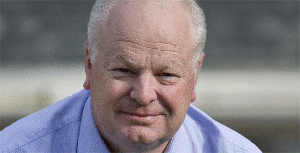
The big four banks and AMP have been called before Australia's Royal Commission for Misconduct in the Banking, Superannuation and Financial Services Industry.
Last week, it was revealed that ANZ did not act on a rogue financial planner who was using his clients' money to invest in property without authorisation.
The bank admitted that commercial interests trumped the interests of consumers.
Revelations from the inquiry led to the resignation of AMP's chief executive and board chairman.
But Hisco told Good Returns that the bank on this side of the Tasman faced a “different set of circumstances” to its parent company in Australia.
ANZ New Zealand has a separate board and a separate governance structure with regulators including the FMA, Commerce Commmission and Reserve Bank.
“They’re in our business actively,” Hisco said. “They can look at whatever they want to look at.
"Structurally we are different too."
He said one of the big differences was the New Zealand market did not have big superannuation schemes with lots of advisers chasing business.
“We don’t have advisers floating around the market place trying to get that."
Hisco said2% of ANZ’s New Zealand staff were advisers. Most of them worked in the private bank operations dealing with sophisticated investors.
He refers to the ombudsman schemes in New Zealand and says there is little evidence there is a problem in New Zealand like Australia. The Banking Ombudsman has said complaints received about banks are roughly distributed according to market share - ANZ is the biggest bank in the New Zealnad market.
“There’s noting in there that looks like anything like the sort of stuff that has happened in Australia," Hisco said.
When asked if there was a need for an inquiry he said: “No.
“I don’t feel there is a need because of those structural differences.”
ANZ Australia says its dealings with the Australian banking royal commission will cost it about A$50 million ($53.3m) this year.
The bank has reported it spent A$16m on legal and other costs associated with the Royal Commission in the first half of the year and flagged a $50m hit for the full year.




